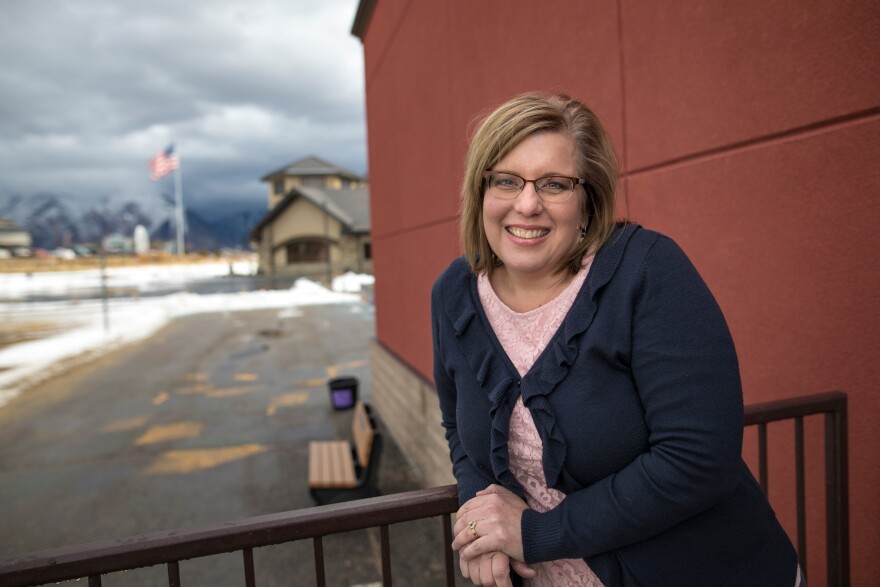This time last year, Stephanie Johnson was miserable.
She was in her third year teaching special education at a junior high school in Lindon, Utah, about 40 minutes south of Salt Lake City.
On the outside it looked like she was doing great. Her classes ran smoothly, students loved her, parents loved her, but like many special education teachers, inside she felt as though she was drowning.
She said she thought about leaving all the time: "I don't know how to describe it, it's just so much work. I just feel like I cannot do it."
It's a very different Johnson I find this year at her new school, the Renaissance Academy, a charter school in the nearby city of Lehi.

On a Friday afternoon, her classroom, which she shares with one other special education teacher, is empty of kids.
Monday through Thursday, these two teachers instruct all of the school's special education students.
On Fridays, though, they have the classroom to themselves, meaning they'll actually have the time to do the thing so many special education teachers find so difficult — the record keeping.
"There's still a lot of work to do and I love that we have Fridays to get that done."
In fact, Johnson says she loves a lot about her new job. And there's one person behind the scenes making that possible.
In a cramped office down the hall, four filing cabinets loom over Kim Beck, the school's special education director. Inside the cabinets, Beck keeps tons of paperwork on all special education students, required by law, showing they are receiving the help they need.

"I try to take most of that paperwork load off of the teachers, so it allows them to teach during the day," Beck says.
And she does much more. She tests students to see if they need special education services, or if they're ready to move on. It's also her job to schedule meetings with parents.
"I don't think the paperwork in and of itself is too cumbersome," Beck says. "Where it becomes cumbersome is the teacher that's teaching all day is now having to do that paperwork."
She says this division of labor might not work everywhere. "You have to find a special ed person who likes paperwork and those are few are far between," she says, adding, "I do love paperwork."
This approach, dividing and conquering, wasn't a directive from any school administrator. The teachers just made it happen, and it's unique.

Laurie VanderPloeg, president-elect of the Council for Exceptional Children, says she is not aware of this happening anywhere else in the country.
What she is aware of is this — special education teachers are spending the majority of their prep time on paperwork, "in lieu of assessing and designing and delivering that specially designed instruction that they need to be providing to the students with disabilities."
From VanderPloeg's perspective, that is taking a toll on student results.
Johnson says the students benefit from the division of responsibilities — and so does she. She admits that she still stays late and comes in early, but the difference is that she gets to focus on teaching her students.
She says a friend approached her at a party recently, commenting, "Stephanie, have you been losing weight? You look so good. I don't know, you just look so good."
Johnson replied, "Oh, that's my new job. That's what you're seeing on my face. It's my new job."
Copyright 2020 KUER 90.1. To see more, visit KUER 90.1.


